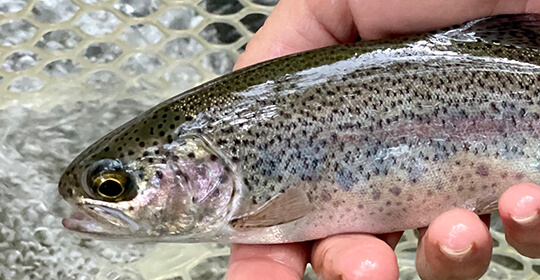5 Sustainable Fishing Practices You Can Implement Today
By Debbie Hanson
Feb 27, 2025
As a recreational angler, you can adopt sustainable fishing practices that will help protect our oceans and freshwater wildlife into the future. Learn about five things you can do to reduce the environmental impact of fishing.
1. Follow Fishing Regulations
Every state has specific regulations designed to protect fish populations and habitats. These rules may include size limits, bag limits, gear restrictions, and seasonal closures. Make sure to familiarize yourself with the regulations for your area and adhere to them. Following these rules is required by law, but you are also doing your part to help maintain fish stocks and biodiversity.
2. Avoid Fishing in Sensitive Areas
Many ecosystems are delicate, and certain areas—such as fish spawning grounds and marine protected zones—are particularly vulnerable to human activity. Avoid fishing in these locations to give aquatic life a chance to grow and recover. Many marine reserves are clearly marked to support minimizing habitat destruction, and local authorities often provide maps or guidelines to help you identify sensitive areas.
3. Use Circle Hooks with Live or Natural Bait
One of the easiest changes you can make is switching to circle hooks when fishing with live or natural bait. Due to their shape, circle hooks help reduce the chances of gut hooking fish and contribute to higher survival rates. They are particularly useful for catch-and-release fishing and are required in some fisheries to protect vulnerable species.

4. Practice Responsible Catch and Release
Catch-and-release contributes to preserving fish populations when practiced correctly. Start by using barbless hooks and circle hooks (as mentioned above), which are easier to remove and cause less damage to the fish. Handle fish gently with wet hands to avoid removing their protective slime coating and keep them in the water as much as possible. If a fish appears stressed (lethargic) when you get it to the boat or shoreline, revive the fish to help it recover before releasing it.
5. Dispose of Waste Responsibly
Fishing lines, hooks, and trash can harm marine life for decades. Work on promoting eco-friendly angling by always carrying a trash bag to collect your waste and participating in waterway clean-up efforts when possible. Additionally, consider using biodegradable monofilament fishing lines and lead-free weights made of tin or tungsten to reduce the environmental impact of your gear.
Why Sustainable Practices Matter
The cumulative impact of unsustainable fishing—both commercial and recreational—has put many fisheries at risk. Overfishing, habitat destruction, and pollution are leading causes of declining fish stocks. By adopting sustainable fishing practices, you can help to preserve our aquatic ecosystems for future generations.
The next time you head out on the water, remember that reducing the environmental impact of fishing matters. Whether it’s using circle hooks or avoiding sensitive marine areas, every conscious choice to protect our ecosystems makes a difference.









